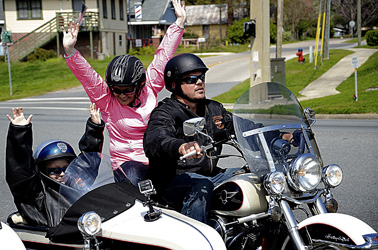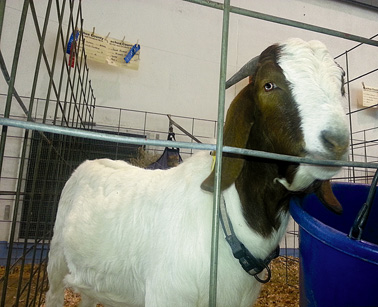Final shows Friday and Sunday
ALACHUA – Will “Southern Hospitality” live up to its reputation and will the Futrelle sisters be able to save their town? These questions will be answered Friday, March 21 at 6:30 p.m. and again on Sunday, March 23 at 2 p.m. at the Alachua Woman’s Club.
Back by popular demand, club members are presenting “Southern Hospitality,” a small town adult comedy. Frankie, Twink, Honey Raye and Rhonda Lynn are in trouble again. This time, the problem is bigger than ever: their beloved hometown, Fayro, Texas, is in danger of disappearing and it’s up to the sisters to save it from extinction.
Ever since the Super SmartMart and the rendering plant closed, folks have been leaving Fayro in droves, but Honey Raye, with a major assist from her former nemesis, Geneva Musgrave, has come up with a possible solution. It seems a salsa manufacturing factory is looking to relocate and a company representative is headed to Fayro on a scouting mission.
Honey Raye, as the president of the Chamber of Commerce, makes promises that are not to be believed in order to woo the rep to choose Fayro. In fact, Honey Raye has told them that on the very weekend of the rep’s visit, the town just happens to be having their biggest celebration of the year: “Fayro Days,” which includes a craft show, a pet costume parade, a beauty pageant and a huge Civil War battle reenactment. So now it’s up to the citizens of Fayro to quickly make her promises a reality.
The Friday night showing offers dinner and a play for $30 and the Sunday afternoon showing features a play and dessert for $20. Tickets are available at Valerie's Loft or 352-214-6342 or 352-226-0153 or e-mail emelie@ufl.edu. This fundraiser helps support the Alachua Woman’s Club in their efforts to support the community.
# # #
Email editor@
alachuatoday.com
Add a comment

 Marc Okes, 8, who has brain cancer, had a wish to go on a motorcycle ride. When he and his mother arrived at the Harley-Davidson shop in Gainesville, a crowd of riders ande police officers were there to take them on a motorcycle ride. Pictired are Marc and his mother as they ride through Alachua on Monday,March 10. The local Make-A-Wish foundation helped make the dream come true for
Marc Okes, 8, who has brain cancer, had a wish to go on a motorcycle ride. When he and his mother arrived at the Harley-Davidson shop in Gainesville, a crowd of riders ande police officers were there to take them on a motorcycle ride. Pictired are Marc and his mother as they ride through Alachua on Monday,March 10. The local Make-A-Wish foundation helped make the dream come true for  GAINESVILLE – The Alachua County Youth Fair and Livestock Show kicked off last Thursday and concluded on Tuesday, March 11. Featuring a wide array of activities teaching youngsters about livestock and agriculture, the event drew in huge crowds throughout its six-day run.
GAINESVILLE – The Alachua County Youth Fair and Livestock Show kicked off last Thursday and concluded on Tuesday, March 11. Featuring a wide array of activities teaching youngsters about livestock and agriculture, the event drew in huge crowds throughout its six-day run.